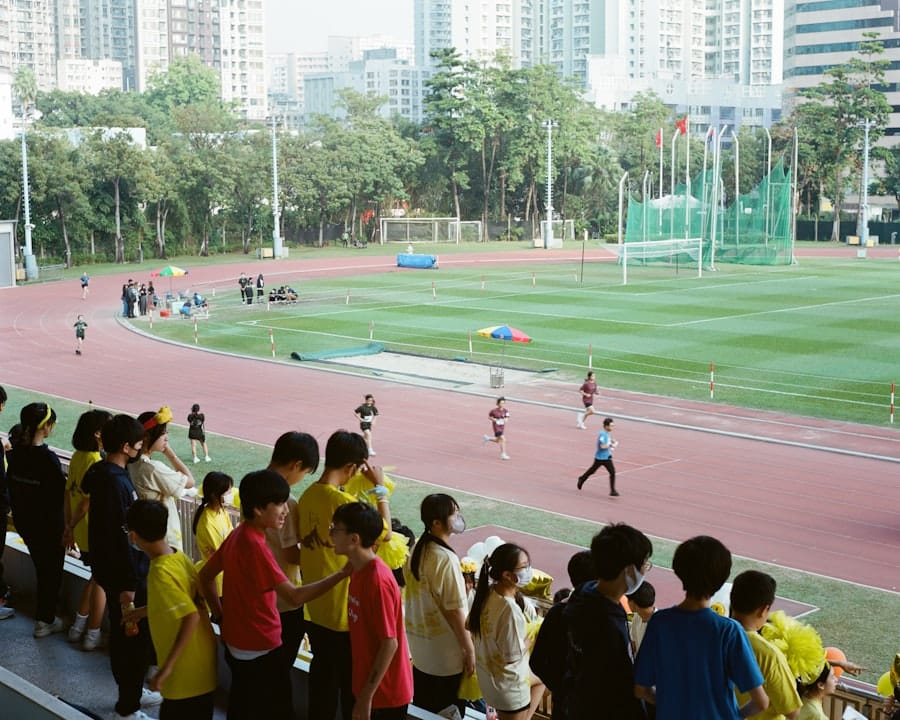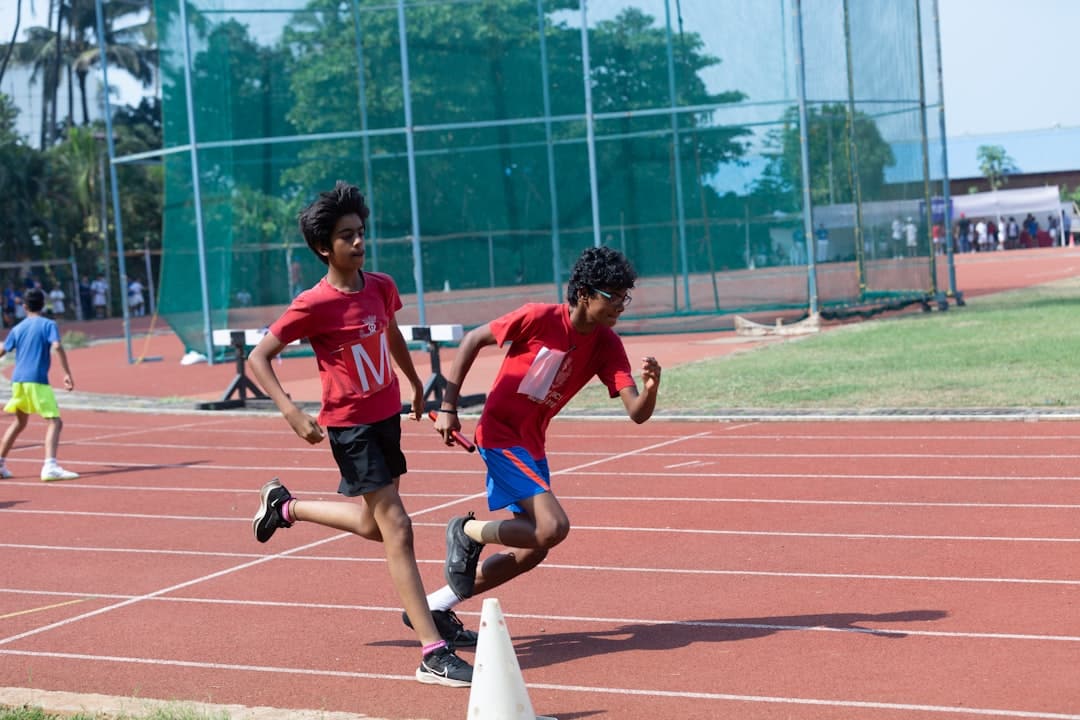The landscape of competitive sports has undergone a seismic shift in recent years, with the rise of esports capturing the attention of millions around the globe. Esports, or electronic sports, refers to organized, multiplayer video game competitions, particularly between professional players, individually or as teams. This burgeoning industry has not only transformed the way we perceive competition but has also sparked discussions about its potential inclusion in traditional sporting events, notably the Olympic Games.
The Olympic Movement, which has historically celebrated physical prowess and athleticism, now finds itself at a crossroads as it contemplates the integration of digital competition into its storied framework. The International Olympic Committee (IOC) has recognized the growing popularity of esports and its potential to engage younger audiences. With millions of fans tuning in to watch tournaments and events streamed online, esports has established itself as a cultural phenomenon that transcends geographical boundaries.
The IOC’s interest in esports is not merely a response to trends; it reflects a strategic initiative to remain relevant in an ever-evolving sporting landscape. As traditional sports face challenges in attracting younger viewers, the inclusion of esports could serve as a bridge to connect with a demographic that is increasingly engaged in digital entertainment.
Key Takeaways
- Esports has gained significant attention in the Olympic movement as a potential addition to the traditional sports lineup.
- The potential inclusion of esports in the Olympic Games has sparked debates and discussions about its compatibility with the Olympic values and principles.
- Challenges and controversies surrounding esports in the Olympic movement include concerns about violence in games, governance and regulation, and the commercialization of the industry.
- Esports plays a crucial role in engaging the youth and new audiences, offering a platform for diverse participation and representation.
- The impact of esports on traditional Olympic sports is evident in the changing landscape of sports entertainment and the rise of digital competition.
- The evolution of esports as a global phenomenon has led to increased recognition and investment, shaping its future in Olympic qualification and competition.
- The future of esports in Olympic qualification and competition is likely to involve continued collaboration and adaptation to align with Olympic standards.
- The continued growth and integration of esports in the Olympic movement reflect the evolving nature of sports and the need to embrace new forms of competition.
The Potential Inclusion of Esports in the Olympic Games
The potential inclusion of esports in the Olympic Games raises intriguing questions about the future of competitive sports. Advocates argue that esports embodies many of the same values as traditional sports, such as teamwork, strategy, and skill. Moreover, esports competitions often require intense mental acuity and quick reflexes, paralleling the physical demands of conventional athletic events.
The IOC has already taken steps to explore this possibility by hosting forums and discussions with key stakeholders in the esports community, signaling a willingness to consider how these digital competitions could fit within the Olympic framework. One of the most compelling arguments for including esports in the Olympics is its ability to attract a diverse audience. Unlike traditional sports that may have regional or cultural limitations, esports has a universal appeal that transcends borders.
Major tournaments like The International for Dota 2 and the League of Legends World Championship draw millions of viewers from around the world, showcasing a level of engagement that rivals that of established Olympic sports. By incorporating esports into the Olympic Games, the IOC could tap into this vast audience, potentially revitalizing interest in the Olympics among younger generations who may feel disconnected from traditional athletic competitions.
Challenges and Controversies Surrounding Esports in the Olympic Movement

Despite the enthusiasm surrounding the potential inclusion of esports in the Olympics, significant challenges and controversies remain. One major concern is the definition of what constitutes a sport. Traditionalists argue that esports lack the physicality and athleticism associated with conventional sports, leading to debates about whether they should be classified as such.
This distinction raises questions about how esports would fit into the Olympic ethos, which has long celebrated physical excellence and competition. Another challenge lies in the fragmented nature of the esports industry itself. Unlike traditional sports with established governing bodies and standardized rules, esports encompasses a wide array of games, each with its own unique mechanics and competitive structures.
This diversity complicates efforts to create a unified framework for competition within the Olympic context. Additionally, issues such as player welfare, mental health concerns, and the potential for cheating through performance-enhancing software further complicate the conversation surrounding esports’ inclusion in the Olympic Games.
The Role of Esports in Engaging the Youth and New Audiences
Esports has emerged as a powerful tool for engaging youth and attracting new audiences to competitive sports. With younger generations increasingly gravitating towards digital entertainment, esports provides an accessible entry point for those who may not identify with traditional sports. The interactive nature of video games allows fans to participate in ways that go beyond mere spectatorship; they can engage with their favorite players through streaming platforms, social media, and online communities.
Moreover, esports fosters a sense of community among players and fans alike. Online platforms enable individuals from diverse backgrounds to connect over shared interests, breaking down barriers that often exist in traditional sports settings. This inclusivity is particularly appealing to younger audiences who value diversity and representation.
By embracing esports, the Olympic Movement has an opportunity to cultivate a more inclusive environment that resonates with contemporary values and encourages participation from a broader demographic.
The Impact of Esports on Traditional Olympic Sports
The rise of esports is not merely a challenge to traditional sports; it also presents opportunities for collaboration and innovation within the Olympic Movement.
For instance, some national governing bodies have started hosting esports tournaments alongside their physical competitions, creating hybrid events that appeal to both traditional athletes and gamers.
Furthermore, the skills developed through esports can complement those required in traditional sports. Strategic thinking, teamwork, and quick decision-making are essential attributes for success in both realms. As athletes from various disciplines begin to recognize the value of these skills, there may be an increased willingness to embrace cross-disciplinary training that incorporates elements from both esports and traditional sports.
This convergence could lead to innovative training methodologies that enhance performance across various athletic domains.
The Evolution of Esports as a Global Phenomenon

Esports has evolved from niche gaming communities into a global phenomenon that commands attention on par with traditional sports.
The establishment of professional leagues and franchises has further solidified esports’ status as a legitimate competitive arena.
The globalization of esports is evident in its diverse player base and fan demographics. Players from different countries compete on international stages, showcasing their skills while representing their nations. Major tournaments often feature live audiences in arenas filled with thousands of fans, alongside millions more watching online through streaming platforms like Twitch and YouTube.
This unprecedented reach has attracted sponsorships from major brands and investments from traditional sports organizations, further legitimizing esports as a significant player in the global entertainment landscape.
The Future of Esports in Olympic Qualification and Competition
As discussions about integrating esports into the Olympic framework continue, questions arise regarding how qualification and competition would be structured. One possibility is establishing specific esports disciplines that align with existing Olympic values while ensuring fair competition among players from different backgrounds. This could involve creating standardized rules and regulations for various games to ensure consistency across competitions.
Additionally, there may be opportunities for collaboration between traditional sports federations and esports organizations to develop hybrid events that showcase both physical and digital competition. Such initiatives could pave the way for innovative formats that engage audiences in new ways while promoting inclusivity within the Olympic Movement. As technology continues to advance, it is likely that we will see further experimentation with how esports can coexist alongside traditional sports within the Olympic framework.
The Continued Growth and Integration of Esports in the Olympic Movement
The conversation surrounding esports within the Olympic Movement is complex and multifaceted, reflecting broader societal shifts in how we define competition and athleticism. As esports continues to grow in popularity and influence, it presents both challenges and opportunities for traditional sports organizations seeking to remain relevant in an increasingly digital world. The potential inclusion of esports in the Olympics could serve as a catalyst for innovation while fostering greater engagement among younger audiences.
While challenges remain regarding definitions, governance, and player welfare, the ongoing dialogue between stakeholders suggests a willingness to explore new frontiers within competitive sports. As we look toward the future, it is clear that esports will play an integral role in shaping the evolution of the Olympic Movement, offering fresh perspectives on competition while bridging gaps between generations and cultures. The journey toward integration may be fraught with complexities, but it also holds immense potential for redefining what it means to be an athlete in today’s interconnected world.
The integration of esports into the Olympic Movement is a topic of growing interest and debate, as it represents a significant shift in how traditional sports and digital competitions intersect. As the conversation around this topic evolves, it’s essential to consider the technological advancements that support the gaming industry. For instance, choosing the right hardware can significantly impact gaming performance, which is crucial for both casual and competitive gamers. An article that delves into this aspect is How to Choose a Smartphone for Games. This piece provides insights into selecting the best devices for gaming, highlighting the importance of technology in enhancing the esports experience, which is increasingly relevant as esports gains traction in the Olympic arena.
FAQs
What is the Olympic Movement?
The Olympic Movement is a global initiative that aims to promote the values of excellence, friendship, and respect through the practice of sport. It encompasses the International Olympic Committee (IOC), National Olympic Committees (NOCs), and International Federations (IFs), among other organizations.
What are Esports?
Esports, short for electronic sports, refers to competitive video gaming. Players compete individually or in teams in various video game titles, often in organized leagues or tournaments with professional players and significant prize pools.
What is the current status of Esports in the Olympic Movement?
As of now, Esports is not included in the official program of the Olympic Games. However, the IOC has recognized the popularity and growth of Esports and has engaged in discussions with Esports organizations to explore the potential for collaboration.
What are the challenges of including Esports in the Olympic Movement?
Some challenges of including Esports in the Olympic Movement include defining and standardizing Esports as a sport, addressing concerns about violence and game content, and establishing a governing body to oversee Esports within the Olympic framework.
What are the potential benefits of including Esports in the Olympic Movement?
Including Esports in the Olympic Movement could attract a younger audience to the Olympic Games, promote the values of sportsmanship and fair play among gamers, and provide a platform for Esports athletes to compete at the highest level on the global stage.
What is the future outlook for Esports in the Olympic Movement?
The future of Esports in the Olympic Movement is uncertain, but ongoing discussions and collaborations between the IOC and Esports organizations indicate a potential for closer integration in the coming years. The inclusion of Esports in the Olympic Games remains a topic of interest and debate within the sports community.

